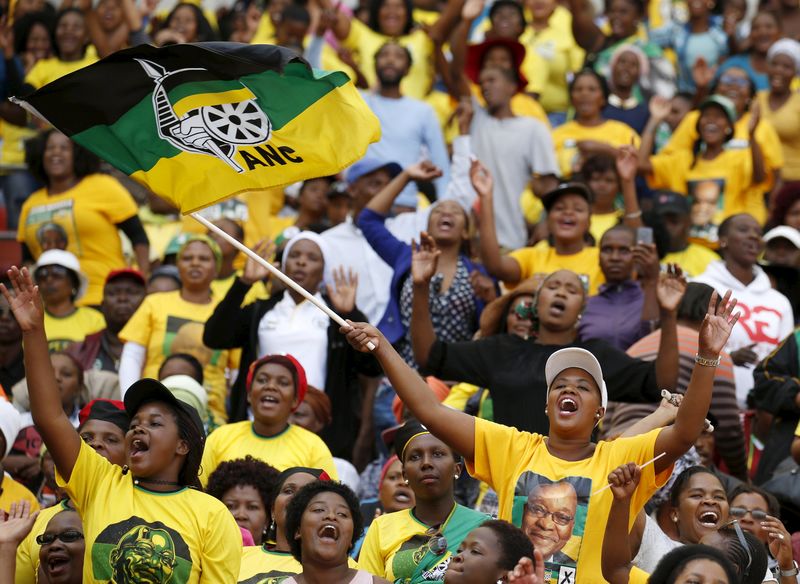(Bloomberg) -- Political uncertainty is probably depressing the value of South Africa rand, according to the head of the International Monetary Fund’s Africa department.
South Africa’s fiscal and monetary policy has been “as good as it gets,” Abebe Selassie said in an interview in Washington. “It’s more on the structural side that attention is needed. It’s more about getting confidence in the private sector to invest."
While most polls are predicting a comfortable win for the ruling African National Congress under President Cyril Ramaphosa’s leadership in the May 8 general election, he faces difficulties introducing reforms to stimulate the economy, consolidate spending and reduce corruption. Ramaphosa’s rise to power to replace Jacob Zuma after a scandal-ridden tenure of almost nine years initially boosted confidence in the rand, but the currency has slumped back to the levels seen before the change in leadership.
“The rand is of course among the most freely floating currencies in the emerging-market universe, subject to the ebbs and flows of sentiment,” Selassie said. “Our view is that there’s nothing awry with the calibration of macro policies.”
The rand weakened sharply last year as rising interest rates in the U.S. put pressure on emerging markets including Argentina, Turkey and South Africa. The currency has gained about 3 percent against the dollar so far this year.
The IMF this week downgraded its forecast for global growth to the slowest pace since the financial crisis. The fund cut its outlook for South Africa to 1.2 percent growth this year, down from 1.4 percent projected in January.
The fund projects sub-Saharan Africa’s economy will grow 3.5 percent this year, accelerating to 3.7 percent next year. Growth in the region is being held back by the relatively slow expansion in major economies including South Africa, Nigeria and Angola, Selassie said.
“What we see is continued recovery, but it is a two-track recovery amid uncertainty,” Selassie said.
